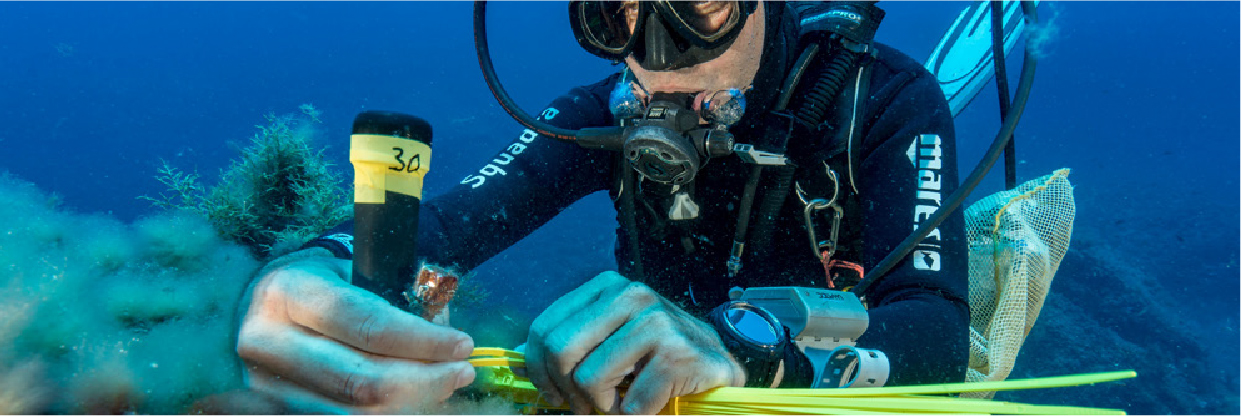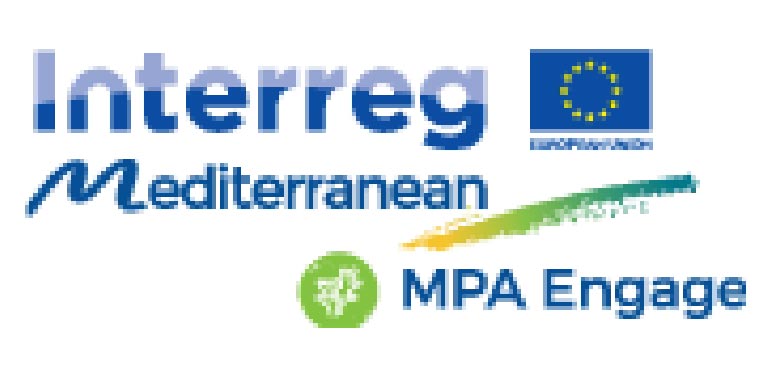 GEOSPATIAL TOOL
GEOSPATIAL TOOL
T-MEDNET Platform
TO WHOM IS ADDRESSED?
Hydrographic offices, Marine Protected Area (MPA) managers, marine scientists, national oceanographic agencies, policy-makers, the interested general publicTHEME
Climate changeKEYWORDS
Climate change, marine ecosystems, mass mortality, MPA, seawater temperature

WHAT PROBLEM WOULD THIS SOLVE?
The effects of climate change in the Mediterranean, such as shifts in species distribution and mass mortality events, have been related to seawater warming. At present, there is no comprehensive view on these effects, which hinders an in-depth analysis of climate change impacts on marine coastal biodiversity in the Mediterranean. The T-MEDNet platform is intended to develop a network to observe the effects of climate change on marine coastal ecosystems by promoting large-scale and long-term data acquisition, using standard monitoring protocols on seawater temperature and biological indicators.

WHAT IS NEEDED FOR IMPLEMENTATION?
Technological infrastructure
The T-MEDNET Platform can be easily accessed online; only a PC and an internet connection are required.
Training
Training to use the T-MEDNET platform is not necessary. The platform website provides access to video tutorials on how to deploy temperature data loggers to monitor seawater temperature, and on how to conduct mortality surveys (see also the MPA-ADAPT Protocols Tool). The integration of other standardised protocols is possible.
Investment
The T-MEDNET Platform can be accessed free of charge.

HOW TO USE IT?
Concept
A display tool allows users to explore the trend in seawater temperature, temperature anomalies, and warming trends at the Mediterranean scale, both locally and in the different ecoregions. Moreover, T-MEDNet developed standard monitoring protocols to track long-term and large-scale mass mortality impacts that provide insights into the changes in distribution of fish indicators species (native warm- and cold affinity fish species and non indigenous tropical fishes). The database includes the network of monitoring sites and the data on the status of populations of macroinvertebrates, collected mainly by MPA managers and scientific teams through a collaborative effort.
Pilot areas
Pilot areas: 80+ sites in Spain, France, Italy, Croatia, Greece, Turkey, Tunisia and Israel
Recommended implementation frequency
The T-MEDNet Platform is continuously updated with new data coming from several users.

WHAT CHALLENGES MAY ARISE?
Sustained monitoring efforts are being conducted in a growing number of sites. The lack of recurrent funding for long-term observation initiatives and network coordination is a serious emerging challenge.

WHAT ARE THE EXPECTED RESULTS?
Quantitative results
For the first time in the Mediterranean, the T-MEDNET Platform can be used to share, access, and display:
- Seawater temperature data, providing insights on coastal thermal regimes and seasonal stratification dynamics over extensive spatial and temporal scales. Moreover, it supports the analysis of warming trends and marine heatwaves in nearshore surface waters (0- 40 m), and contributes to building more realistic coastal warming scenarios for the 21st century.
- Biological impacts, providing insights on mass mortality events affecting the coastal benthic biota over extensive spatial and temporal scales. Moreover, it supports the analysis of the relationships between T-conditions and biological responses, including episodic events, in particular the onset of mass mortality events, but also changes in distribution, behaviour, and phenology. Finally, through the T-MEDNET Platform, it is possible to test and complement climate change approaches for coastal and Marine Protected Areas, from local to regional scales.
Transfer potential
The development of a collaborative platform and the provision of data ingestion, quality check, and data management services has resulted in unified databases on essential physical and biological variables for Mediterranean coastal waters. The data and information has been transferred in several ways: networking, at the national, European, and international level; data reporting (through the Digital CSIC); data sharing with EMODnet Physics (work in progress); and contributions to the Marine Copernicus Ocean State Report issue #3 (in press, summary available online); and through various scientific publications. The yearly data and information update is an objective of the network coordinators, as they seek recurrent funding schemes.
The T-MEDNet initiative is a successful end-to-end, bottom-up collaborative story between marine scientists and marine protected area managers. The approach and the tools have been set with the aim of building a representative coastal network on a Mediterranean scale, which is why they can be easily implemented in other European and Regional Seas.
KEY INFORMATION
temperature time series
sites logged in
temperature samples in 70+ sites
- Continuous T-series are now logged in more than 70 sites, mostly in the Western Mediterranean, but also in the Alboran, Adriatic, Ionian, Aegean, and Tunisian sub-basins, resulting in a unified quality-checked database.
- The T-MEDNet database has been crucial for analysing the inter-annual variability of the stratification dynamics of coastal waters (5-40 m) under climate forcing, including the regional heatwaves of the summers of 2003 and 2006 (the warmest August and July in France since 1950 respectively) and recent marine heatwaves (2015-2019).
- As of today, there are about 80+ temperature time series in the database, with almost 30+ million temperature samples in 80+ sites, for depths ranging from the surface to a depth of 67 m.
- The implementation of Mass Mortality Events module has fueled the collaboration among research teams across the Mediterranean.
As a main result, T-MEDNet is now providing the most comprehensive view on these events (+1200 events) covering all Mediterranean ecoregions (http://tmednet.org/mass-mortality/mass-mortality-events). - The set-up of the new module on Climate Fish in 2022 is an important step forward for gathering information on the onoging changes in fish indicator species related to the warming.
For further information
Project contact: MPA-ADAPT
- Joaquim Garrabou, ICM-CSIC
Links of interest
- T-MEDNet Platform
- Biodiversity Protection Knowledge Platform – MPA-Adapt Project Viewer
- MPA-ADAPT work on climate change and marine protected areas
Partners
- Corsican Agency for Environment (OEC)
- International Union for Conservation of Nature (IUCN) – Centre for Mediterranean Cooperation
- Marine protected Area Pelagie Islands – Management Body
- Municipality of Lampedusa and Linosa
- Mediterranean Protected Areas Network – MedPAN
- Port-Cros National Park
- Public Institution Brijuni National Park
- Regional Natural Park of Corsica
- Spanish Ministry of Agriculture and Fisheries, Food and Environment
- Spanish National Research Council (CSIC)
- University of Malta






